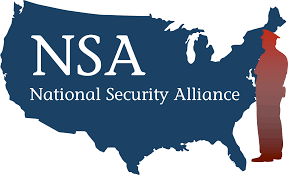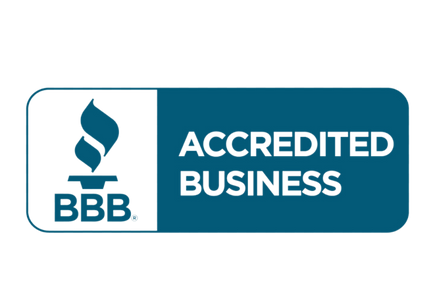
Learn how training, documentation, and solid contracts protect your security firm from lawsuits, liability, and reputational damage.
Lawsuits, Liability, and the Line of Duty: How Security Firms Can Reduce Legal Risk Through Training and Documentation
Russ Willmon
5 - minute read
Any incident—from excessive force to a slip-and-fall on a guard’s post—has the potential to trigger a lawsuit. Whether or not the fault lies with the guard, clients overwhelmingly want the risk shifted to the guard firm, elevating the critical nature of having solid insurance and ironclad contracts.
From a cost perspective, legal liability leads as the greatest risk to a firm’s bottom line. Adequate coverage is essential in any circumstance, but taking steps to mitigate the potential for a lawsuit is even more important. Well-trained guards understand the limits of their position and will act appropriately to avoid crossing any lines that would put them at fault.
While you can’t eliminate the risk entirely, you can significantly reduce it by providing comprehensive training to ensure guards are adequately equipped for their posts and have a thorough understanding of local, state, and federal laws.
On the back end, firm leadership must collaborate with their legal team and insurance underwriters to address risk and contractual risk transfer issues in the event of an injury, property damage, or a criminal act.
Defending Your Position in a Legal Dispute
Even with a solid training program, comprehensive insurance, and ironclad contracts in place, incidents still happen.
When they do, your preparedness will be tested, and not just in court. Every step leading up to the witness box will be scrutinized in agonizing detail. There’s typically a lot of money on the table, and legal teams on every side will fight with everything they have.
One of the most stressful aspects of the legal process is, inarguably, a deposition. A deposition is a series of yes or no questions that you don’t often have the opportunity to defend or provide context for. What’s said here becomes evidence and can make or break a liability case.
Lawyers will try their level best to prove negligence. Adequate training is always a concern, as is the company’s (and the guard’s) track record, and whether their actions were reasonable and within the legal scope.
You will be asked to provide documentation, reports, and any relevant video or audio evidence. If your records are disorganized or incomplete, that can be seen as negligence in itself.
Plaintiff attorneys love inconsistencies. They’ll look for discrepancies between the guard’s statement, the training manual, and the firm’s conduct. The bottom line here is that not only do your guards need to understand your policies, but they also need to be able to articulate them under oath. Failure to do so can be the difference between a defensible position and financial ruin.
Surviving a deposition requires grace under pressure. Well-trained guards will be confident when giving testimony and less likely to falter when questioned.
On the firm’s side, you will need to prove that you train. Being able to provide training data with dates, outcomes, and any other pertinent details will satisfy many questions and will, perhaps, shift the questioning in another direction.
Documentation: Your Shield in Court
Documentation, solid contracts, and ongoing guard training are baseline essentials that will protect your guards and your firm from exposure. Here are a few tips to inform your process.
Prioritize Documentation
Documentation is more than just filing incident reports. You need to maintain detailed guard training records, post orders, client contracts, and insurance policies, and understand how all of these affect your business continuity.
Think of documentation as a shield. Every bit of data must support the argument that you acted responsibly, proactively, and mitigated risk. If you treat documentation as just paperwork, you might discover your error when it’s tested in court, and by that time, it’ll be too late to do anything about it.
Contracts: Your First Line of Defense
Much of your legal exposure is already defined in your contracts.
Clients will try to shift as much liability as possible onto the guard firm, often attempting to include scenarios that should rightly fall under the client’s purview. Without careful contract review and negotiation, a firm may end up being liable for events beyond its control.
We recommend working closely with your legal advisors and insurance broker to review each contract thoroughly before execution.
Here are a few items to pay special attention to:
· Indemnification Clauses. Ensure they are mutual and do not require your firm to indemnify the client for their own negligence.
· Additional Insured Requirements. Confirm that your coverage extends appropriately without creating uninsured exposures. Your insurance broker is the best resource here, as they can highlight areas of risk.
· Scope of Work. The exact nature of the guard’s duties must be clearly defined. This helps limit liability if a client later claims your guards should have responded differently.
· Incident Reporting Requirements. Align contracts with internal reporting procedures to avoid conflicts in claims handling.
Contracts are not formalities; they are strategic tools for risk transfer. Each client will have different concerns and risk levels, so contracts should be structured with that in mind.
Training: The Smartest Form of Risk Mitigation
Quality guard training is a sustainable form of risk mitigation. It directly reduces the likelihood of incidents and strengthens your defense should you land in court.
Beyond basic certifications and legal concerns, training should focus on developing decision-making skills under pressure, enhancing communication skills, and improving situational awareness. These are the soft skills that often prevent minor incidents from escalating into more serious situations.
Training should also include:
· Use of Force. Guards must know instinctively where the line is drawn and what is justified under law and company policy.
· Legal Awareness. Guards must understand local trespass laws, citizen’s arrest, and detention limitations to prevent overreach.
· Documentation and Reporting. Properly written reports can make or break a defense case. Establish a standard and enforce the policy.
· Ongoing training. Continuing education and advanced training reinforce decision-making and improve retention.
For the back office, ensure that training schedules, attendance records, and course outcomes are maintained. Defencify’s online training programs support this practice, as all data is held securely in the cloud.
Build a Strong Support Network
You don’t need to navigate liability exposure alone. Strong relationships with legal counsel, insurance brokers, and risk management consultants guarantee you always have the advice you need.
Schedule regular reviews of your insurance limits, exclusions, and endorsements to ensure your coverage and contracts align with the risk you’re taking on. Laws change, and client demands shift, so staying on top of these details is your best protection.
Conclusion: Protect More Than Property
A guard firm’s reputation is its most valuable asset. Clients trust you not only to protect their sites but to conduct yourself professionally, with good judgment and accountability.
While legal exposure can’t be eliminated, it can be managed through disciplined planning, documentation, and a culture of continuous training.
Explore our online guard training today and learn how easy and affordable it is to protect your bottom line.






